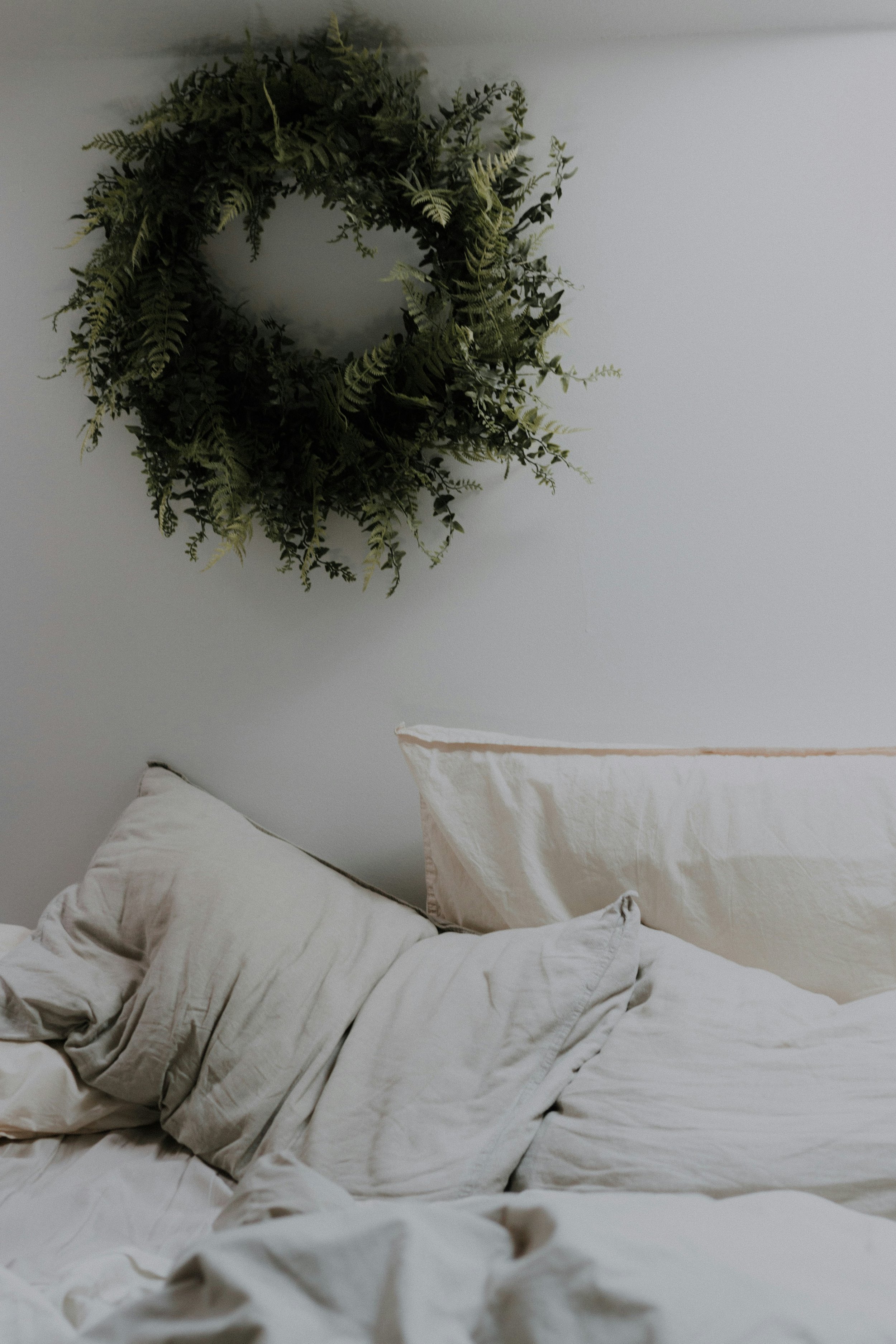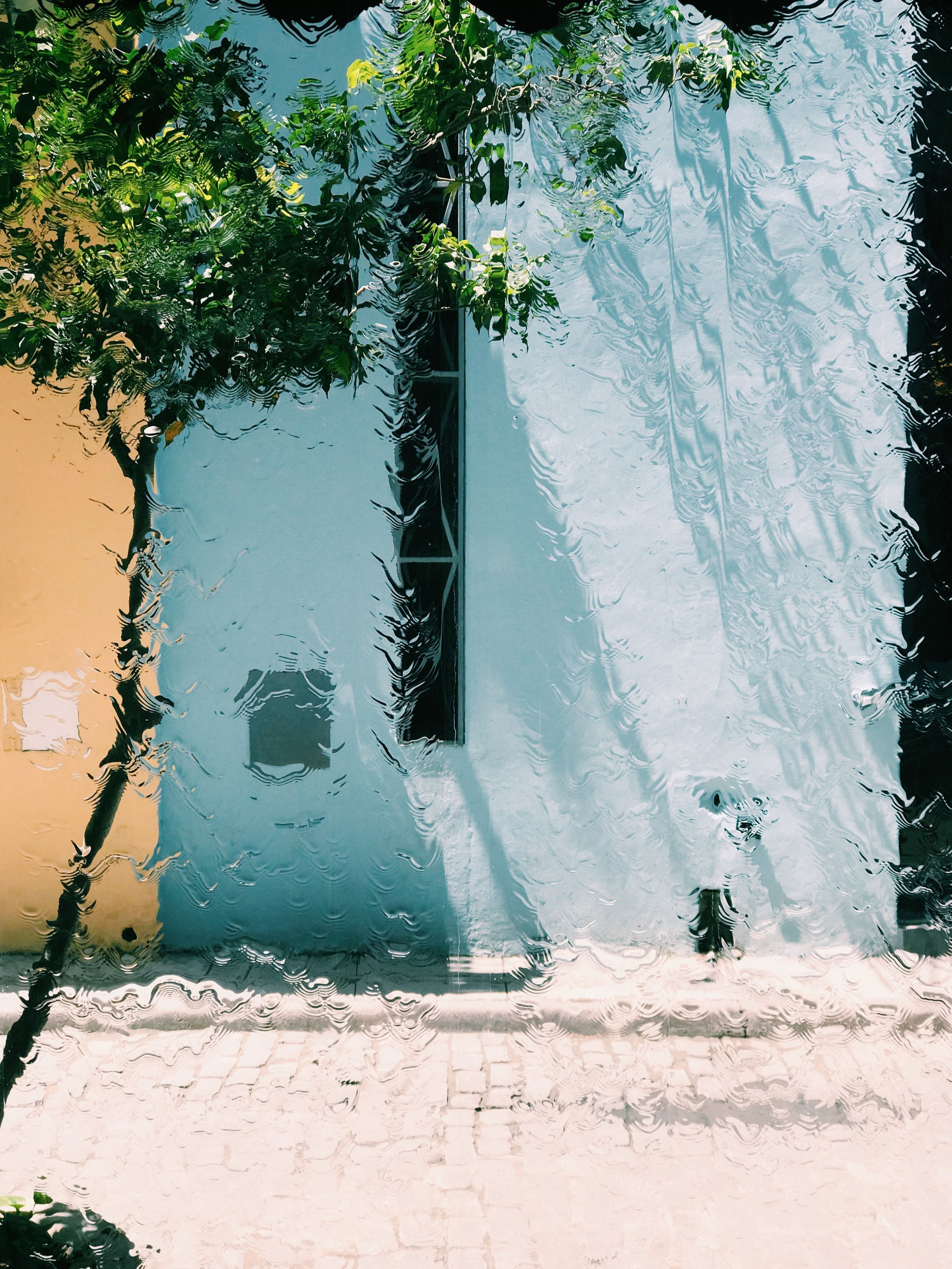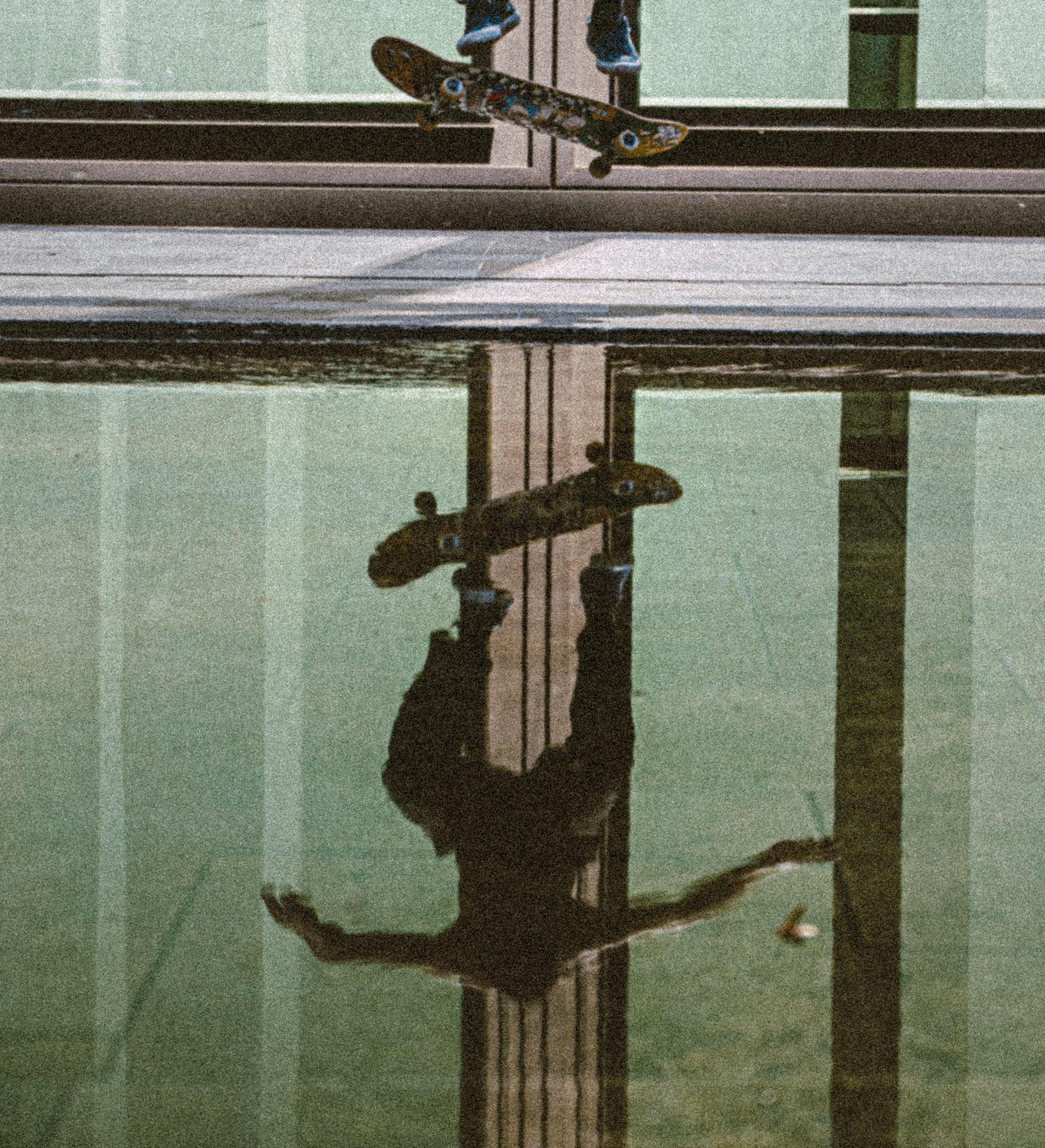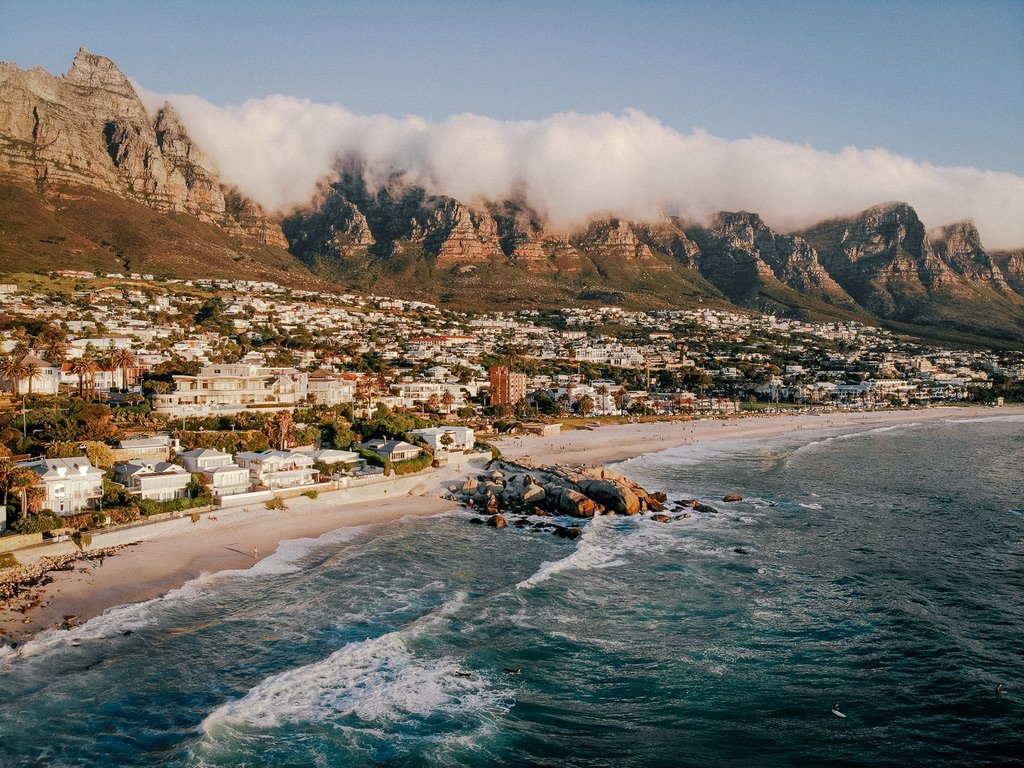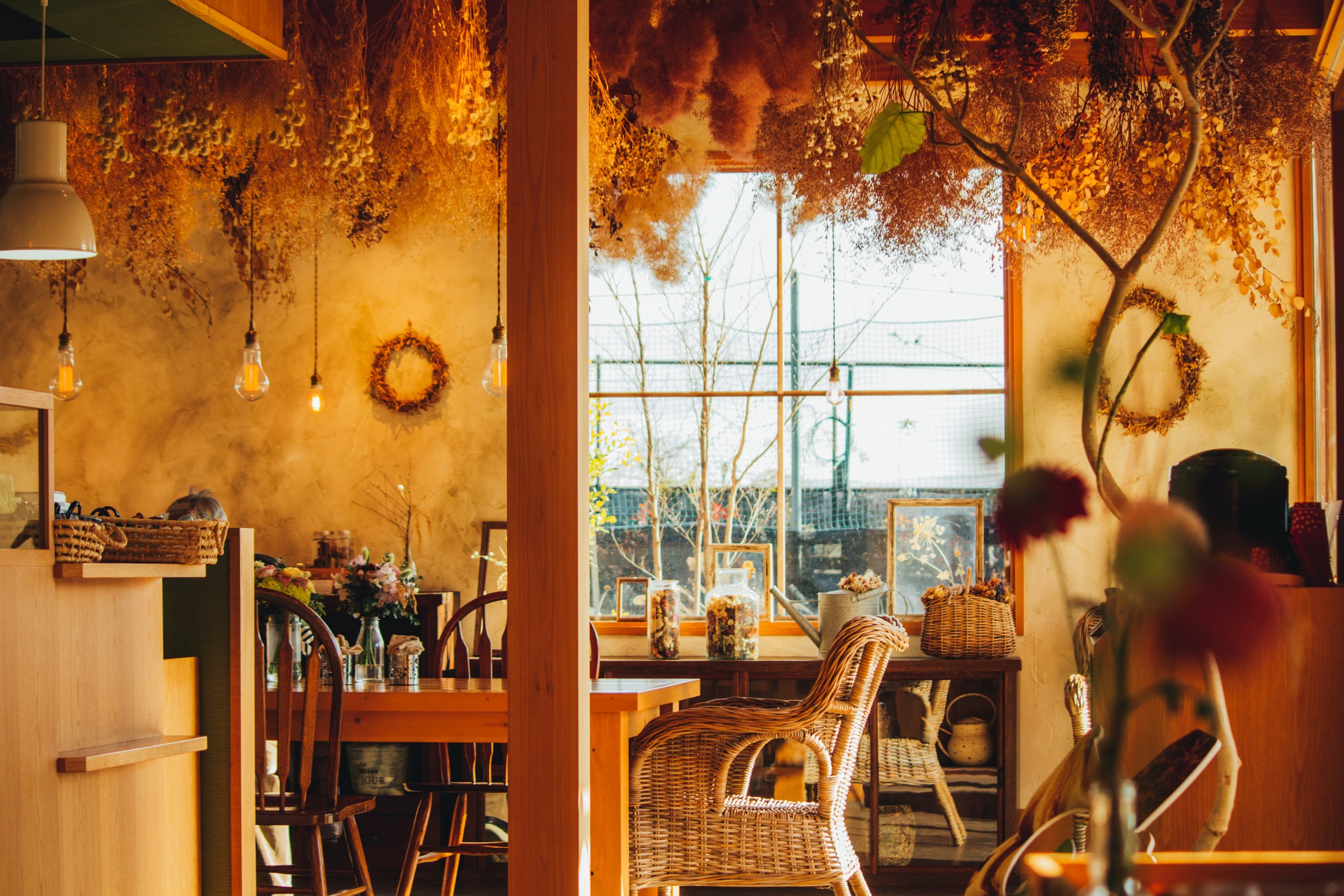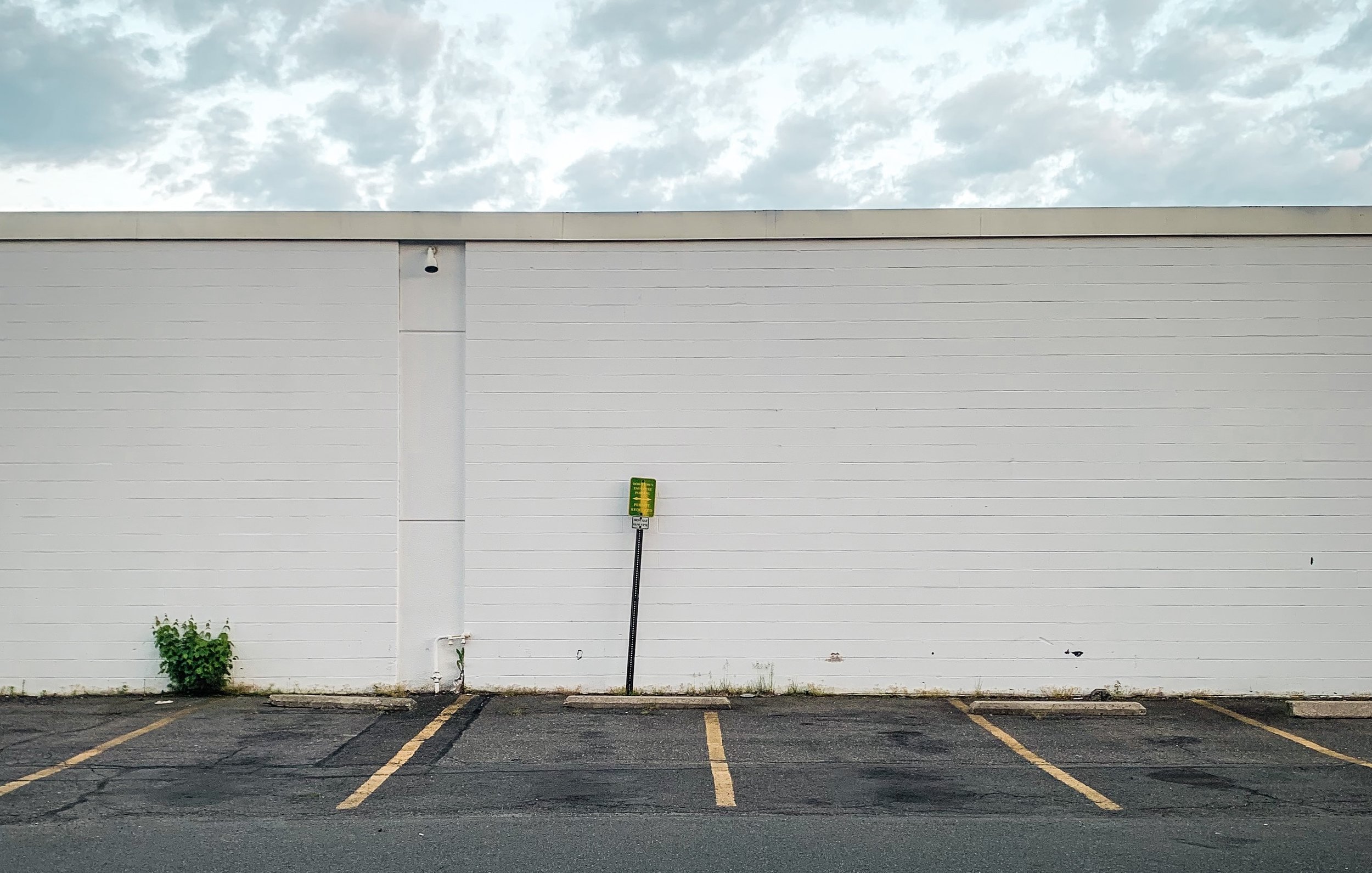To the Cloud-Listener

In a streak of sun somewhere above the Berkshires, you told me: “Vermont is about to change your life.” You tilted toward me with a smile so sure of itself I couldn’t help but mirror it. “Both of us are going to be different people when we leave this state.”
Boston had already pixelated to suburb and then to green beneath us, and I couldn’t tell if my heart was racing from your words or from the rattle of our little plane. Had I wanted my life to change before you planted the possibility, a bulb to root and bloom beneath the soil of my days?
I’d just defended my graduate thesis, finished Tetris-ing my Minneapolis apartment into a pod, and flown to the East Coast, where my boyfriend had been hired for a job a few months earlier. After overlapping for 24 hours in our new Boston apartment, I was now due in Vermont for an artist residency. Hearing your prophecy, I thought: Nearly everything in my life has just changed—what more could happen? I felt raw. Both from what I was losing—the salary and structure of graduate school life, the city I had come to love, the friends who knew me there—and what I was about to gain: a reunion with the rocky coast, not to mention my boyfriend.
All through the spring of our long-distance separation, I missed him. At the same time, I marveled at how liberating it was living alone. I was excited to carve a life in a new city with him, but I struggled to visualize its contours. I imagined the artist residency as my interlude: the bridge between past and future worlds. I would write in solitude for 20-odd days, then emerge, ready to nest.
My $70 plane ticket led me to what felt like a toy, manned by two captains in aviator glasses who looked like father and son. My seat was across the aisle from the only other passenger: you. It was my first time on a plane where the airline weighed our bodies and suitcases, then told us where to sit. Acutely aware of myself as cargo—a breakable thing—I gripped the armrests and tried not to see my limbs pinwheeling through the air.
You weren’t afraid. “This’ll help,” you said, handing me a tear of buttered croissant as we left the earth, engine snarling in our ears. I was in my mid-twenties and you were maybe a decade older, wearing a hoodie and stretched-out jeans with a band of beads around your wrist. By the time I started chewing, you were staring out the window, tracing a finger over the glass, telling me about the shapes of clouds. You said you were listening for their variations. I stopped waiting for our plane to crash long enough to imagine what a cloud sounded like. What was the difference between an “egg-drop soup” cloud and a “spongy caterpillar” cloud?
“Acutely aware of myself as cargo—a breakable thing—I gripped the armrests and tried not to see my limbs pinwheeling through the air.”
You called your field sonic healing, said you’d met a guru who’d taught you to listen to everything—really listen. You spoke of vibrations. You said it felt like learning a new dimension, like scrubbing the tarnish off reality. The guru’s words had made you want to leave the daycare where you worked to learn more. Children’s books had become distracting because the pictures kept communicating, you said. One dolphin in particular had a lot to say.
“So, what brings you to Vermont?” I didn’t mean to change the subject, but I wasn’t sure how to respond to your gospel. I wanted to test what reality we shared.
“I’m following the guru,” you said, lifting a finger from the glass as you turned my way. Your voice was calm, the pilot light of your smile unwavering. You told me she had a farm up here, and you didn’t know how long you’d stay. Your job at the daycare was gone, and in its place was the bulging bag the crew had loaded twenty minutes earlier. “I gave up my place in Boston.”
My eyes widened. I hadn’t pegged you as one for grand actions. You, with your white socks folded above your running shoes and a Lilly Pulitzer tote wedged between them. So, this was the body of a person leaving their life behind. You spoke of your decision with pride, your laugh like a bell, your curly bob a halo of frizz and light. You didn’t seem nervous at all.
“So, this was the body of a person leaving their life behind. You spoke of your decision with pride, your laugh like a bell, your curly bob a halo of frizz and light. You didn’t seem nervous at all.”
When you asked what brought me to Vermont, I shared only the bones of my life. I told you I had received a lucky opportunity to write in a beautiful place. After that, I would settle in Boston so I could be with my boyfriend. I did not tell you that our relationship had started a few months into graduate school. That I—insecure, 23—had found my identity there through my connection with him. Our habits clicked so naturally it was easy to forget that the blurring of a boundary between two lives is inherently a sort of erasure. Because I liked who I was around him, I rarely considered the parts of myself that had gone fuzzy, been blotted out.
My cheeks were hot under your patient gaze, and as we crested above a cloud, the sun pinned us both in its glow. That’s when you took my hand and told me life would change in Vermont. Not just yours, but mine, too. You could feel the shimmer, the shifting. I had never received a prophecy before, but I understood it as a gift. I thanked you. Then, with my mind circling your words, I trained my iPhone on the undulating ground beneath us. A few minutes later, you poked me. “Smile!” Before I could pose, your camera captured the buzzed necks of the pilots, the empty seats behind us, my arm still outstretched for my own video. Your laughter was like a child’s, unfenced, and I couldn’t help but join in. The captains joined, too, the older one throwing us a thumbs-up as he pointed out this lake, that town. I felt like I was floating above my body, watching it, judging it. Soaring through the air with you, I was surprised to feel suddenly anchored. There was nowhere to dwell but my buzzing limbs.
Six hours later, you emailed me. No text, just rows of photos. I was surprised how delighted I looked in them. You couldn’t see my fear of the tiny plane, nor the whiplash from the changes I was going through. By the time I got the email, I was in my residency bedroom. Our introductory dinner was done, the one where the sculptor—tall, foreign, older—crashed into my life, planting himself beside me at the table, refilling my wine, listening intently to my story about you. Did sharing your prophecy give him permission to appear, first on my phone, then at my studio, then by my side? I suppose it’s not fair to blame him for all that came after, just like it’s not fair to blame you for telling me things would change, or showing me how a person could change them, trading one version of adulthood for another.
I didn’t think of you much during the residency itself. I was busy mentally replaying my relationship, hunting for signs I had missed, scenes that could help explain my newfound doubt. I still loved my boyfriend, but the life we were about to build now felt like someone else’s. Could I will myself to want that future again?
It was lilac season, and the roadsides were bursting in purple, the air syrupy, the blossoms shaggy and sagging on their stems. Their beauty struck me as obscene: a race to bloom and then to rot. Only later would I understand how the residency turned me—like you—into a person who collected signs. Muzzled by my guilty conscience, I found conversations with other people hard. I went through dinners in a fog, heart pounding when the sculptor’s foot nudged mine beneath the table. In the forest, I searched for glimmers of how I should proceed. When a tiny, broken wasp nest appeared from a piece of wood, I clutched its paper orb like an omen. I couldn’t tell if the sculptor’s attention was helping me see what I had been blind to in my relationship, or if the sculptor was, in fact, the blindfold. His affection felt like a test. I couldn’t decide if I wanted to pass or fail.
“I felt like I was floating above my body, watching it, judging it. Soaring through the air with you, I was surprised to feel suddenly anchored. There was nowhere to dwell but my buzzing limbs.”
For so long, I carried shame about that summer. Mostly about leaving a good man for a bad one, but also about judging you. I squished you into a dinner table anecdote: the woman who listened to clouds. I did not take your practice seriously. You were an adult, casting off a job for a guru you did not know. The choice seemed irresponsible, even embarrassing. I worried you had fallen under a spell.
In the season that followed—after I visited the sculptor overseas—I thought often about emailing to say that you were right. It was only after I uprooted my plans that I understood how brave you had been to uproot yours. Courage and foolishness, I now knew, could go hand in hand. Still, I did not want to learn what had come of your leap into the unknown; I did not want to recognize regret. I was still clinging to my vision of a globe-trotting life with the sculptor, and I was afraid of what I might see if I peered too closely at the parallel rivers of our lives, each bend in yours just a little ahead of mine. I didn’t want to know yet if your farm had been a cult, or if the guru had been cruel. I didn’t want to imagine your relationship with her crashing the way mine with the sculptor already was, losing gas, spiraling down. I didn’t know then that I would be able to survive such a landing, or that life would mean taking off and coming down again, and again, and again.
When I think of you now, I want only to see you in the air, nose to the glass, waiting for the song of the clouds. I feel protective of who you were up there, on the brink of change. In learning to see you without judgment—for listening to the clouds, for sloughing off your life—I see a path to forgive myself. I spent so many hours that summer trying to muffle my feelings, but you were right to talk about listening. You taught me that some of the voices that nudge us are inexplicable: murmurs from dolphins, lilacs, the eddies of our pasts. Now, when I hear such a song, I think less about why it has appeared, and more about how I might greet it.
“Hello,"you said to me on that long-ago day. “Hello.”
About the Author
Erica Berry is a writer and teacher based in her hometown of Portland, Oregon. Her essays appear in The Guardian, The New York Times Magazine, The Yale Review, Catapult, Outside, and Guernica, among other places. Her debut book, Wolfish: Wolf, Self, and the Stories We Tell About Fear, will be published in early 2023 by Flatiron Books (U.S.) and Canongate (U.K.).
Read Erica’s “Behind the Essay” interview in our newsletter.
Header photo by David Ballew.
Edited by Tusshara Nalakumar Srilatha.



